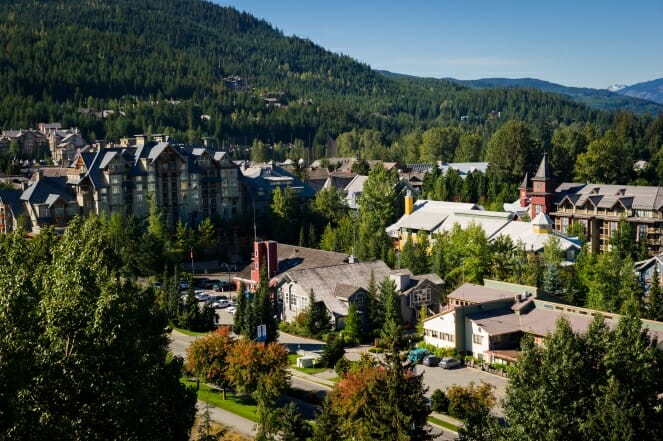Release from the Community Energy Association
The District of Squamish and the Resort Municipality of Whistler are collaborating on a new project to lower embodied emissions in new construction and develop an Embodied Carbon guide for BC Municipalities. This project is being recognized as a potential “game-changer” by the Community Energy Association (CEA).
The Game-Changer program provides local governments with access to CEA’s staff expertise in order to develop a local climate action initiative that has the potential to drive change within communities. The program is new in 2021 and is part of a suite of CEA programs and services intended to provide enhanced support to communities during this decade of climate action. See the CEA website for more information about the Game-Changer program. A home energy leadership program in the City of Rossland has also been recognized by CEA as a 2021 game-changer.
CEA has previously worked with Squamish and Whistler on their local climate action plans, which were adopted by Squamish Council in April 2020 and Whistler Council in December 2020. Both plans include pledges to significantly reduce local greenhouse gas emissions (45% in Squamish and 50% in Whistler) by 2030. Both plans also recognize that buildings account for approximately one-third of local emissions. While most of those emissions are associated with the ongoing heating and operation of a building, about one-quarter of emissions in current buildings are “embodied,” and associated with the manufacturing, transportation, installation, and disposal of the materials used in the construction of buildings. In the future, as buildings become more energy-efficient, those embodied emissions are expected to account for more than half of a building’s total emissions. Currently, embodied emissions aren’t reported or measured in municipalities. Squamish and Whistler’s work on embodied emissions with CEA will lead to an Embodied Carbon Guide for BC Municipalities that will feature Squamish and Whistler as case studies.
The embodied carbon project has been approved by the Councils of both municipalities. See the links for the staff reports:
“The Resort Municipality of Whistler is pleased to partner with the District of Squamish and the Community Energy Association on this important initiative,” said Whistler Mayor Jack Crompton. “Climate action is one of the Resort Municipality of Whistler’s focus areas, as we work towards an ambitious target of reducing our greenhouse gas emissions by 50 per cent by 2030. We know our buildings account for a significant amount of these emissions, so finding ways to lower their embodied emissions is critical to achieving our goals and lessening our community’s overall impact on climate change.”
“The climate emergency is one of the most significant challenges of our time and one that impacts all of our policies, decision-making and operations at the District of Squamish,” says Squamish Mayor Karen Elliott. “The District of Squamish has made a commitment to bold climate action by 2030 and addressing greenhouse gas emissions related to buildings and homes are one of the six big moves identified in our Community Climate Action Plan. The Game-Changer program will help Squamish gain meaningful traction on our goal of reducing local greenhouse gas emissions and we are excited to be collaborating with the Resort Municipality of Whistler and the Community Energy Association on this program that will enable us, and other local governments, to take a meaningful and important step forward on addressing the climate emergency.”
CEA is a member-based, non-profit organization working since 1995 to help communities reduce emissions, conserve energy, and progressively transition to a low-carbon, resilient economy. CEA staff are distributed around BC and its Board is comprised of representatives from local governments, utilities, and the private sector.
“For all communities to reach their targets for greenhouse gas emission reductions this decade, significant changes have to be made,” says Dale Littlejohn, Executive Director of the Community Energy Association. “Communities across BC are already implementing many of the known, high-impact solutions to reduce emissions, and some are ready to push the boundaries of what is possible. Communities such as Squamish and Whistler are game-changers; they are advancing bold initiatives with the potential to have impacts beyond their borders. We’re proud to leverage our expertise and assist them in understanding the complete picture of emissions associated with where we live and work.”

